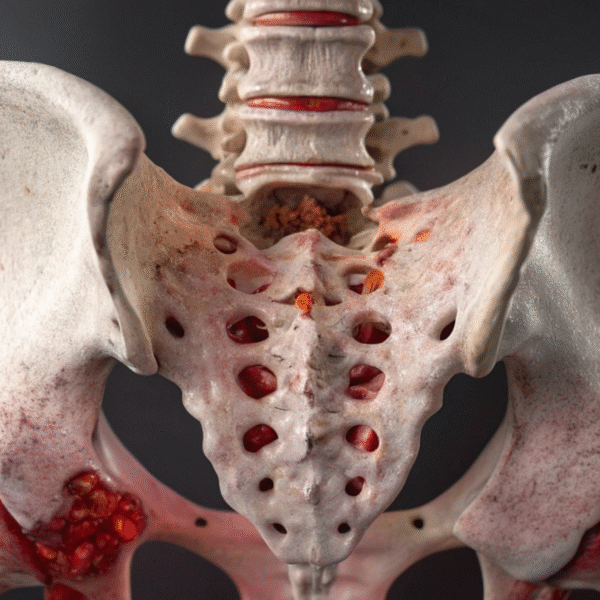
Pelvic and Abdominal Pain: When the Cause Isn’t Obvious — How a Pain Specialist Can Help
Pelvic and abdominal pain can be especially frustrating because the source is not always easy to identify. The discomfort may come and go, shift in intensity, or feel vague and hard to describe. For many people, the pain persists even after normal imaging or lab work looks “fine,” leaving them without clear answers.
If this sounds familiar, you are not alone. And more importantly, help is available. Pain specialists are uniquely trained to evaluate complex pain patterns, uncover overlooked causes, and guide you toward meaningful relief.
Why Pelvic and Abdominal Pain Can Be So Complicated
The pelvis and abdomen contain a dense network of organs, nerves, muscles, and connective tissues. These structures are closely interconnected, so irritation in one area can trigger discomfort in another. Some common challenges include:
- Overlapping symptoms: Pain from the bladder, reproductive organs, digestive system, or pelvic floor may feel similar.
- Multiple systems involved: Musculoskeletal dysfunctions can mimic organ-related problems, and vice versa.
- Referred pain patterns: Irritation in the lower back, hips, or spine can refer pain into the pelvic or abdominal region.
- Chronic sensitization: When pain lasts long enough, nerves may become more reactive, creating heightened or persistent pain even after the initial issue improves.
This complexity means that even when basic testing is normal, pain can still be very real and very treatable.
Common Causes of Pelvic and Abdominal Pain
A pain specialist evaluates both common and lesser-known contributors. Some possible causes include:
- Pelvic floor dysfunction
Tight or weak pelvic muscles can lead to pain, pressure, urinary symptoms, bowel changes, or painful intercourse. - Nerve-related pain
Nerves in the pelvis and abdomen can become irritated or entrapped. Examples include pudendal neuralgia, ilioinguinal nerve entrapment, and genitofemoral nerve irritation. - Spine or hip issues
Lower back or sacroiliac joint problems can radiate pain into the pelvis or abdomen. - Myofascial pain
Trigger points in the abdominal wall, hips, or lower back can mimic internal organ pain. - Post-surgical pain
Scar tissue or nerve irritation after abdominal or pelvic surgery may lead to ongoing discomfort. - Chronic gastrointestinal or urologic conditions
Conditions like IBS, interstitial cystitis, or endometriosis often cause overlapping pain patterns.
How a Pain Specialist Helps When Answers Are Hard to Find
1. Comprehensive Evaluation
A detailed review of symptom patterns, functional limitations, and previous tests helps identify overlooked causes. Pain specialists also assess musculoskeletal and nerve-related contributors that may not appear on standard imaging.
2. Targeted Diagnostic Procedures
When the source isn’t clear, minimally invasive techniques can help pinpoint which nerves, joints, or muscles are involved. Diagnostic blocks, pelvic floor assessments, or imaging-guided evaluations may provide clarity.
3. Personalized Treatment Options
Depending on the cause, treatment may include:
- Nerve blocks or targeted injections
- Physical therapy with pelvic floor specialists
- Medications tailored to nerve or muscle pain
- Trigger point therapy
- Minimally invasive pelvic nerve treatments
- Spine or sacroiliac joint care
- Lifestyle and movement guidance to reduce flare-ups
4. Collaborative Care
Pain specialists often coordinate with urologists, gynecologists, gastroenterologists, physical therapists, or surgeons to ensure every possible cause is addressed.
When to Seek Help
- Your pain persists and tests keep coming back “normal.”
- You have difficulty with daily activities, sitting, exercise, or sexual function.
- Pain radiates into the groin, hips, or lower back.
- You’ve been treated for a pelvic or abdominal condition but still have pain.
- You want a clearer diagnosis or a more comprehensive treatment plan.
You Deserve Answers and Relief
Unexplained pelvic or abdominal pain can take a toll on your physical, emotional, and daily well-being. But the fact that the cause is not immediately obvious does not mean nothing is wrong. A pain specialist can help uncover the reasons behind your discomfort and guide you toward evidence-based solutions that truly make a difference.
If you’re tired of guessing or feeling dismissed, it may be time to take the next step toward clarity and relief.
Leave a reply


